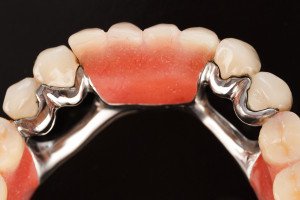6 Common FAQ’s Regarding Dental Bridges
 A dental bridge is a fixed prosthetic dental device that is commonly utilized to replace a single missing tooth or multiple teeth by permanently attaching an artificial tooth or teeth to dental implants or your existing teeth. Patients who have had Community Dental Group develop their dental bridges for them had numerous questions initially which we have listed here. Hopefully, these will answer your questions about the procedure as well.
A dental bridge is a fixed prosthetic dental device that is commonly utilized to replace a single missing tooth or multiple teeth by permanently attaching an artificial tooth or teeth to dental implants or your existing teeth. Patients who have had Community Dental Group develop their dental bridges for them had numerous questions initially which we have listed here. Hopefully, these will answer your questions about the procedure as well.
How do I care for my dental bridge? Since the success of your dental bridge is dependent upon the health and strength of your remaining teeth, it is important that you continue to practice good oral hygiene habits. Brush and floss your teeth after meals in order to prevent gum (periodontal) disease and tooth decay.
How long will my bridge(s) last? Again, this depends on the individual getting the dental bridge. In most cases, they will last anywhere from 5 years to 15 years or longer provided you practice good oral hygiene habits and visit your dentist on a regular basis. So it is not uncommon to see dental bridges last for up to 10 years before replacement is needed.
How much will I have to pay for my dental bridges? The costs involved with dental bridges typically vary from one patient to the next so it is difficult for us to provide you with a dollar amount right up front. In most cases, the geographical region where you live and the type of dental bridge you receive will determine the costs of the procedure.
What types of dental bridges are available? There are three primary types of bridges that are commonly used by dentists today – Cantilever, Maryland-bonded, and traditional bridges. Ask your Community Dental Group dentist to explain the differences between these 3 types. This will help you in the decision-making process.
Will I have any difficulty eating? When you replace a missing tooth or teeth, you should find it considerably easier to chew your food and eat it like you normally would. However, you will want to eat softer foods cut into smaller pieces than what you are used to until you have grown accustomed to your dental bridge.
Will my bridge affect the way I speak? Since it is difficult to speak and enunciate properly when you have missing teeth, you should see a marked improvement in your speech when you get dental bridges. When the bridge is properly worn with your existing teeth, it will enable you to speak properly.